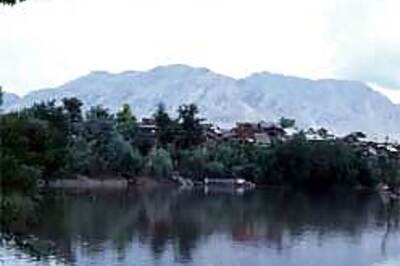
views
Terai: Mass rallies have been planned across the Terai region of Nepal after the country adopted a new constitution on Sunday with an aim to bolster its transformation to a peaceful democracy after decades of political instability and a long civil war.
There is widespread tension in the Terai region which borders India as it could force people to migrate to Bihar and Uttar Pradesh. Police spokesman Kamal Singh Bam said protests had been held in several parts of the Terai, where some lawmakers' homes had been vandalised, although the rest of the country was largely calm.
According to reports, the Indian embassy in Nepal warned the Ministry of External Affairs in India about the possible backlash but the warnings were ignored. The Foreign Secretary was sent as the PM's special envoy but by then the voting on the new constitution had ended.
In what is being considered as a big headache for India is that China has come forward to welcome Nepal's new constitution.
India said in a statement it was concerned by the clashes near the border and called for differences to be resolved "through dialogue in an atmosphere free from violence and intimidation".
The new constitution is the final stage in a peace process that began when Maoist fighters laid down their arms in 2006 after a decade-long insurgency aimed at abolishing an autocratic monarchy and creating a more equal society.
But its adoption follows weeks of clashes between police and protesters that have left more than 40 people dead, among them two children and a police officer lynched as he was driven to hospital in an ambulance.
One protester was killed on Sunday when police fired into a crowd which had defied a curfew in the southern district of Parsa to demonstrate against plans to divide the world's youngest republic into seven federal provinces.
The move to create a new federal structure that will devolve power from the centre has widespread support, but critics say the planned internal borders will leave some historically marginalised groups under-represented in parliament.
They include the Madhesi and Tharu ethnic minorities who mainly inhabit Nepal's southern plains, along the border with India.
"In this happy moment we have been unable to include half of Nepal's population," said senior Maoist leader Baburam Bhattarai, a former prime minister, referring to the densely populated southern region known as the Terai.
"It is not time for us to celebrate yet."
The work on the constitution began in 2008 after the Maoists won parliamentary elections and abolished the monarchy.
It was initially supposed to finish by 2010, but the Maoists were unable to secure enough support for the two-thirds majority needed to push it through parliament.
The three biggest forces in parliament -- the Nepali Congress, UML and Maoist parties -- finally reached agreement in June, spurred by a 7.8-magnitude earthquake two months earlier that killed nearly 8,900 people and destroyed around half a million homes.
But there has been strong opposition from some quarters, including Hindu groups who do not believe Nepal should be a secular state.
Rights groups say it discriminates against women by making it more difficult for them to pass on citizenship to their children than it is for men.
Hundreds had gathered on Sunday outside Parliament in Kathmandu, which was decked out in balloons and Nepali flags.
The mood on the capital was broadly celebratory although there were some protests early on Sunday by political groups who oppose the charter.
Critics say it does too little to empower minorities, and many took to Twitter to voice their disapproval under the hashtag #notmyconstitution.
Bhimarjun Acharya, a constitutional lawyer, said the bill included provisions for improving the involvement of low-caste groups, women and minorities in national politics, but some of these were not clear-cut and success would depend on how they were implemented.
The new constitution will trigger the resignations of both the government and the president, although the timing of those changes is unclear.
Sentiment was mixed on the streets of Kathmandu, with many residents saying they hoped to see an end to the protests and political instability that have held back the impoverished country.
"We have waited for this for so long. I am happy today, but there is also a sense of sadness because we have seen so much violence in the last weeks," said finance worker Nabina Ranjit, 27.
"I wish everyone would be celebrating today, but unfortunately, the leaders have failed to address the grievances of all Nepalis."
(With AFP inputs)

















Comments
0 comment